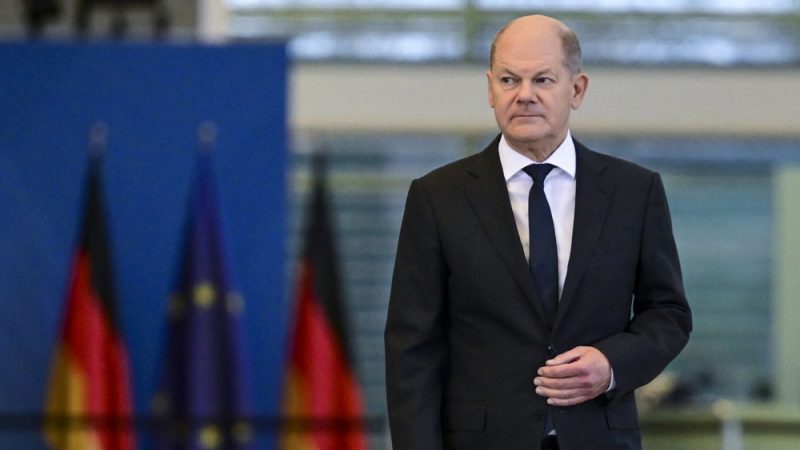
Comparing German and British politics especially from the point of view of the centre-left is tempting, though it might be trickier than it seems at first. Since the Blair—Schröder times, Anglo-German collaboration to define and redefine the progressive way forward has had a special flavour, but also weight. Germany and Britain are among the largest countries of Europe. The ways their citizens vote mean a lot not only domestically but for the continent as a whole. They are among the G7 and the UK also is a nuclear power.
However, the different electoral systems separate the two countries. While the two-party system in the UK limits the options of voters, in Germany, the left, the right and the centre are more fragmented – which also means that in Germany, it is almost a rule that a coalition governs the federal state. In Britain, it is rather an exception.
Yesterday’s election closed an extraordinary chapter: an experiment with a social democratic-green-liberal (‘traffic light’ or Ampel) coalition. The return to a CDU-CSU chancellor might be business as usual, but there is some real drama here. The SPD lost some 40% of its deposits while the far-right AfD doubled its power. The liberal FDP was knocked out of parliament while the far-left Die Linke was resurrected.
‘The far-right exploits the geography of discontent’
How to tame the far-right has been and will remain a daunting question. A common lesson in both Germany and the UK (but also the US) is that the general anti-populist outrage failed to contain the increasingly aggressive ultra-conservative trends. The far-right has been emboldened and the border between centre-right and far-right has become blurred. Germany may become the first after many opposite examples where the centre-right resists the opportunity of an alliance with the far-right. But even if that happens, in the long-run this is not a substitute to having strong progressive parties offering a vision but also tangible improvements in the lives of the working people.
Interestingly, the origins of the main far-right parties in the two countries are similar, and three factors stand out in particular. First of all, both the UKIP (predecessor of the current Reform party and the interim Brexit party) and the AfD were launched against the monetary union. UKIP wanted to categorically rule out dropping sterling and AfD opposed the way the eurozone crisis was managed. Second, for growth both parties capitalised on problems around migration, and became distinctively xenophobic. Third, their vote share is particularly outstanding in regions which are economically ‘left behind’ or even depressed (in England, it is the North, and in Germany, it is the East), which means that the far-right exploits the geography of discontent.
Observers of German politics also point out the skilful use of social media campaigns by the AfD. This might have moved a couple of percentage points, and only explains a small part of the problem. In Germany, the far-right problem is so dramatic that demonstrations were regularly held against them before both the 2024 EP and the recent Bundestag elections. This, however, also meant that nobody really criticised the centre-right. The truth is that in the past 15 years it was not the AfD which caused incredible harm to the European economy and societies, and also paved the way to the current political misery, but the CDU-CSU in coalition with the FDP, when the centre-right Wolfgang Schauble was finance minister.
READ MORE: ‘Germany’s election offers insights into the threats Labour could face going forward’
Economic challenges on both sides of the continent
In both Germany and Britain the economy appears as a key question. The new German coalition must stop the industrial decline and find a way for recovery but perhaps also to a new economic model. The difference is that Germany can only do that in close coordination with the EU partners. At the same time, reforming the foolish and counterproductive debt break is entirely in the power of the Germans.
Out of the two countries, Germany might be more hamstrung at the moment. Brexit has been an example of self-harm, but in the last five years more pillars of the German growth model have been knocked out, and their manufacturing output fell by 20%. Britain surely faces complications and constraints too, but it remains at least a half-realistic plan to become the fastest growing economy among the G7.
‘Choosing a candidate other than the incumbent may appear to be the admission of failure’
Does Labour need to worry because of the sorry fate of the Scholz-coalition in Germany? They certainly can avoid becoming a one-term government, not least because the Ampel coalition was not doomed from the very start either. There was synergy between the three players, to go for deeper European integration, and deliver modernisation, sustainability and more social cohesion in a consistent programme. Since, however, the start of the Russo-Ukrainian war, the coalition has been engulfed in a maelstrom of external shocks, unforced errors and national humiliation. Some ministers have become an international embarrassment.
Could the SPD have a better result with a timely change of the lead candidate? It might be the case. Leadership surely matters. Voting often follows party loyalty in case of established parties but an outstanding top candidate may appeal better to peripheral or undecided voters. Some would say the SPD result would have been better (than 16.5%) if the hitherto defence minister Boris Pistorius would have become the new candidate.
However, when in government, choosing a candidate other than the incumbent leader may appear to be the admission of failure. This was the case in France where Francois Hollande stepped back ahead of the 2017 election but it eventually did not lead to a very good result even without him. On the other hand, the Swedish social democrats managed well the transition from Stefan Löfven to Magdalena Andersson, and the party remained strong, although for the time being remains in opposition.
In any circumstance, after the abysmal results in the EP and the Bundestag elections, German social democrats must reflect about the reasons of their decline and the strategy that could turn things around. Much of this work will have a European dimension and will be coordinated by the Party of European Socialists in 2025. Essentially, progressive forces – in the EU, Britain, as well as North America – will need a new strategy with a clearer economic and social programme at its heart.
For more from LabourList, subscribe to our daily newsletter roundup of all things Labour – and follow us on Bluesky, WhatsApp, Threads, X or Facebook .
- SHARE: If you have anything to share that we should be looking into or publishing about this story – or any other topic involving Labour– contact us (strictly anonymously if you wish) at [email protected].
- SUBSCRIBE: Sign up to LabourList’s morning email here for the best briefing on everything Labour, every weekday morning.
- DONATE: If you value our work, please chip in a few pounds a week and become one of our supporters, helping sustain and expand our coverage.
- PARTNER: If you or your organisation might be interested in partnering with us on sponsored events or projects, email [email protected].
- ADVERTISE: If your organisation would like to advertise or run sponsored pieces on LabourList‘s daily newsletter or website, contact our exclusive ad partners Total Politics at [email protected].





More from LabourList
‘Labour won’t stop the far right by changing leaders — only by proving what the left can deliver’
‘Cutting Welsh university funding would be economic vandalism, not reform’
Sadiq Khan signals he will stand for a fourth term as London Mayor